After midnight at a children’s care home called Ivy Cottage in the summer of 2010, a gap-toothed 15-year-old boy named Aaron Leafe turned on the taps in the bathroom and kept them running. A staff member knocked on the door, and Aaron opened it a crack. On the nearby floor were pyjama bottoms soaked in blood.
“Have you cut yourself?” the staff member asked.
Aaron had slashed his right arm repeatedly. In his bedroom, staff found two handwritten suicide notes in a folder he had labeled “Dad”.
This was at least the 23rd time that Aaron had hurt or tried to kill himself, and it fell to Keys Group, Britain’s second-largest private children’s care home company, to protect him from himself. Keys makes millions each year charging taxpayers for the care of vulnerable children around Britain, which typically house between one and five kids. But a cache of internal documents obtained by BuzzFeed News reveals that, for years, Keys cut corners in its drive for profit — with devastating consequences.
At Keys, where a single home can earn £1.5 million a year, staff faced constant pressure from their bosses to bring in revenue, four former employees told BuzzFeed News. One manager, who declined to be named, said that each home was ordered to turn a 42% profit margin. If they didn’t, managers risked “disciplinary action”, the former employee said.
The more children in Keys’ care, the more money it made. As a result, Keys put children at risk by moving rapidly to fill beds without considering whether a new arrival might cause harm, documents and inspection reports show. “If you have a house of sexually abused girls, you don’t put a predatory boy in there,” said Mark Roberts, a former manager. “But they would say, ‘You have to, because there is still a free bed in the home.’”
That’s what happened to Aaron: A few weeks before the teen hurt himself in the bathroom, Keys moved a predatory new boy in with him. Staff strenuously objected, but Keys went ahead anyway, said Paul Bancroft, one of the carers whom Aaron trusted most. The reason was simple, Bancroft said: “Empty beds mean lower income.” Soon, Aaron began to spiral.
Despite the huge fees it collected, Keys also scrimped on the cost of caring for the children. Interviews and documents show that Keys often pushed its threadbare staff to the limit, making them work gruelling hours — often with little backup — for pay that often scraped minimum wage.
As Aaron recovered from his latest suicide attempt, Keys let Ivy Cottage languish understaffed. An employee who was on duty later at Keys Derbyshire facility told the police the company gave staff there no specific instructions for how to care for a child who had just tried to kill himself. Employees would “carry on as normal, but keep an extra eye on the resident”, the employee said. “There was no real concern for Aaron.”
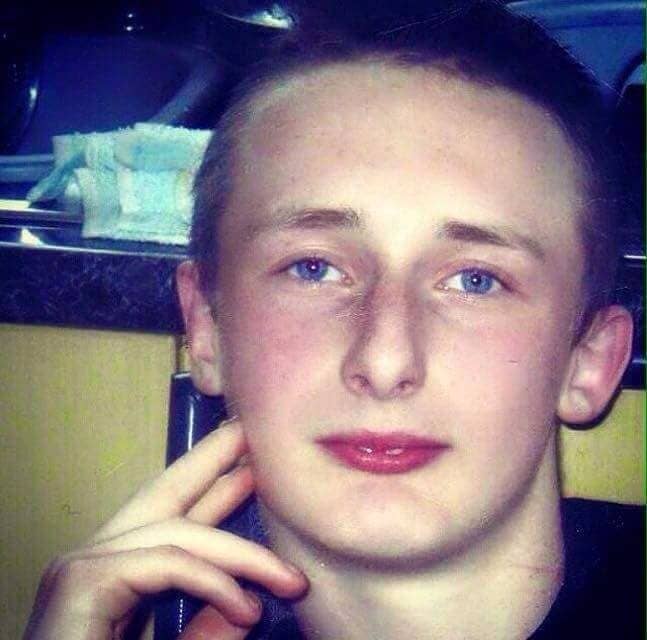
The teenager spent the next two days tying nooses from ropes in the garden, leaving them scattered around the property. He showed them to the other two kids at Ivy Cottage and told them explicitly he was gearing up to hang himself.
That Saturday evening, less than 48 hours after hurting himself in the bathroom, Aaron put on his best suit while the other kids were playing Xbox. Announcing he wanted “peace and quiet” to write some rap lyrics, he shut himself in an empty room. This time when a staff member knocked, no reply came. Aaron had hanged himself.
Aaron’s 2010 suicide should have been a wakeup call. In response, Keys claimed to “do our utmost” to keep children safe and promised to improve its “already robust care processes”. But a BuzzFeed News investigation today exposes how, in the ensuing years, Keys continued to cut costs and chase revenues in ways that put children’s lives in serious danger.
Keys says these allegations are historical — new owners who took over in 2017 have installed “completely new senior management” and “invested significantly” in care for children. Keys’ overall profit margin in its most recent public accounts was 5%, the company said, a “far cry” from the 42% per home mentioned by the former employee.
BuzzFeed News has uncovered calamitous failings across a sector now dominated by for-profit companies. Private providers charge taxpayers hefty sums, but their care homes have been rated subpar more often than homes run by nonprofits or local governments, according to a BuzzFeed News analysis of the latest available regulator data. Last week we exposed how the nation’s largest provider, Cambian, moved to cut costs and fill beds to please investors — while children in its care suffered violent assaults and lived in decrepit conditions.
Shown BuzzFeed News’ findings of both Cambian and Keys, the chair of the powerful parliamentary education committee said he would be “discussing the matter” with the other committee members. “These allegations of the mistreatment of some of society’s most vulnerable young people by these companies are extremely troubling, and should be investigated thoroughly,” said Robert Halfon, the Conservative MP for Harlow.
BuzzFeed News interviewed dozens of former Keys staff, childcare professionals, social workers, and local police forces; analysed hundreds of government inspection reports; and obtained a leaked cache of over 800 internal company documents as well as police records, forensic reports, and the damning confidential “serious case review” conducted by local authorities to determine whether Aaron Leafe’s death could have been prevented.
Our investigation has found:
Under pressure to fill homes and meet profit goals, Keys management continued to place vulnerable children in the same homes as violent peers — with “traumatic” results.
Children in Keys homes have been sexually abused, physically assaulted, recruited into gangs, and allowed to self-harm. In just a three-month span in 2016, there were 15 reports of possible child sexual exploitation among the 230 children in Keys homes.
Councils continued to pay Keys vast sums: up to £400,000 per year for the care of a single child. That’s almost 10 times the cost of sending a child to Eton College. Yet Keys homes and staff remained starved of resources.
Overburdened Keys employees allowed children to go missing thousands of times in a single year, documents show. That’s a rate that far eclipses the rest of the residential care system, statistics from a similar timespan suggest.
Keys says that it has “undergone substantial change” and put its problems behind it since 2017, when the private equity firm G Square Capital bought a majority stake in the company that February and installed new management that August. “Our absolute priority is to provide high-quality care for the children we support,” Keys chief executive Trish Lee said in a statement.
The company said it “would not be appropriate” to discuss Aaron’s death or anything else that occurred before the G Square Capital takeover, because those incidents “relate to the previous administration”. Keys also provided BuzzFeed News with its own current figures on inspection grades and children going missing, which it said showed that the company is now “providing standards of care higher than the national average”.
The vast majority of the problems detailed in this article occurred before the G Square Capital takeover. But even since the takeover, inspectors have found alarming issues inside some Keys homes. A child at one “continued to be assaulted, verbally and physically, until she was moved to another home”; a second home put children “at extreme risk of exploitation”; at a third, staff reported feeling “unsafe”.
Most of the troubling post-takeover inspection reports cited by BuzzFeed News came before G Square Capital installed new management, Keys said; the others were only a month into the new leadership’s reign. Lee said in her statement that she and other executives have moved quickly to overhaul the company’s culture — but that it takes time to institute the reforms. “It would be unreasonable to suggest that any new leadership team could overnight effect significant organisational change,” she said. Some troubled homes have already received improved inspection grades, Lee added.
Before the takeover, Keys was owned by two Belfast-born businessmen, Don and James Patterson, who are also known for investing in property. This spring, the Times valued their wealth at €62 million. James Patterson declined to comment on a letter detailing allegations in this article from during the brothers’ tenure, which includes Aaron’s death. “We appreciate you sending that,” he said of the letter, “but unfortunately we can’t respond.”
As with any suicide, it is impossible to know exactly what led Aaron to kill himself. But the official review of his death was unsparing: Keys failed him.
“I was scared of him. I just did what I was told.”
So, too, did a second for-profit provider. Right before Aaron landed at Keys, a company called Barford Care looked after him — and “neglected” his “basic need to be kept safe”, the serious case review found. Barford also declined to discuss Aaron's case, citing new ownership, and a former senior manager at Barford did not respond to a request for comment.
The children who stay in care homes have often suffered serious abuse or other trauma. Their behaviour is frequently challenging and their needs are complex. They tend to require therapy, special education, constant supervision, and “consistent, loving relationships”, said Jon Fayle, chair of the Adolescent and Children’s Trust.
At many Keys properties, the scene was often something much closer to mayhem: children igniting homemade flamethrowers, hiding weapons under their pillows, running away with dangerous adults, and suffering abuse at the hands of other children, Keys staff, and themselves. Yet business kept booming: In the spring of 2017, Keys announced that it had cleared £2 million in profit over the previous year, charging taxpayers an average of £187,000 a year per child — an 8% increase over the year before.
The company has thrived in an industry that was nonexistent three decades ago but is now a dominant force. Local councils ran care homes exclusively until the 1990s, when councillors grew worried about ballooning costs and turned to private providers to save money. Now over three-quarters of all care homes are run by for-profit companies.
There is little evidence that this sea change has brought lower costs — or higher quality. A BuzzFeed News analysis, using the most recent inspection data available, shows that 19% of private care homes inspected by the regulator Ofsted were rated “inadequate” or “requires improvement” as of March 31. That’s worse than homes run by nonprofits (16%) and by local governments (15%). (For a full explanation of our analysis, click here.)

The same data shows that 22% of Keys’ inspected care homes were rated below par. However, the company appears to have scored better since the new management took over last summer. Keys told BuzzFeed News that its most recent inspections have boosted the company’s overall grades even further. Keys is now “out-performing all industry averages”, the company said, demonstrating the new leadership’s “positive impact”.
Internal company documents expose another widespread problem from before the sale to G Square Capital: Children went missing at an astonishing clip. During an 11-month span in 2015–16, there were more than 2,300 missing children incidents — an average of around 10 per child. That’s much more often than in the rest of the country, government statistics suggest: In a 12-month period in England ending in March 2017, there were six missing incidents per child in care.
The government says its numbers are “experimental”, because it only recently began keeping data on the subject, and Keys told BuzzFeed News this means they are “unreliable”. Keys also noted that unlike the internal company documents, the government’s figures don’t include other parts of Britain, “where reporting thresholds for missing from care episodes are different”. The company also told BuzzFeed News that during a more recent eight-month span in England, its children went missing at a much lower rate.
Stopping children from going missing is far from impossible. For example, the Caldecott Foundation, a charity-run group of care homes looking after 27 children, had exactly one missing incident in 2017, according to managing director Nick Barnett. By contrast, a single Keys home caring for three young people in 2017 had 25 missing episodes in a three-month span.
Children who disappeared from Keys homes have got into cars with male strangers, had sex with unknown men, and have become involved in drugs and crime, documents and interviews show. Keys noted that these incidents happened before G Square Capital took over; the home with 25 missing episodes came after the takeover but before new management was installed.
Before the management change, in one home where overworked carers were begging Keys for more resources, a young girl ran away after being hounded by a predatory member of staff. When police turned up at the home to investigate her disappearance and asked staff to search her room, they found dozens of explicit letters from the worker. The letters were piling up in her room, but the other staff hadn’t noticed.
Something was tormenting Aaron Leafe, too. When he built up the courage to tell his carers at Keys what was wrong, the company moved a violent new boy in with him, then let Aaron deteriorate without the supervision he needed. “If Keys Group had cared for him appropriately,” said Malcolm Stevens, former adviser to the children’s commissioner, “he would still be alive today.”

Aaron was born with protruding ears and a childhood squint. His parents split up after his father was jailed for assaulting his mother. Social services in Nottinghamshire began receiving allegations, some from his school, that he was being abused — physically, emotionally, and sexually — starting when he was 7 or 8, police reports obtained by BuzzFeed News show.
His mother struggled to control him from an early age, police reports show. As a toddler, Aaron would bang his head against hard surfaces. When he grew a bit older, he started climbing on top of buildings, and one day, he climbed on his mother’s roof after a fight. Deciding she could no longer cope, she gave him up — just days before his 12th birthday.
At the very first home he stayed at, he was sexually assaulted by another child, his mother told police; he then bounced from home to home until authorities finally found him a permanent place called Woodland Retreat, run by Barford.
Aaron played for any kind of attention he could get from the new adults in his life, according to care records and police reports. He wound them up constantly and relished occasions when his unruly behaviour forced them to fill out official paperwork — “Ha, you’ve had to do an incident report.” But he warmed to the carers who stuck with him, eagerly joining in when they offered to ride bikes with him or build snowmen.
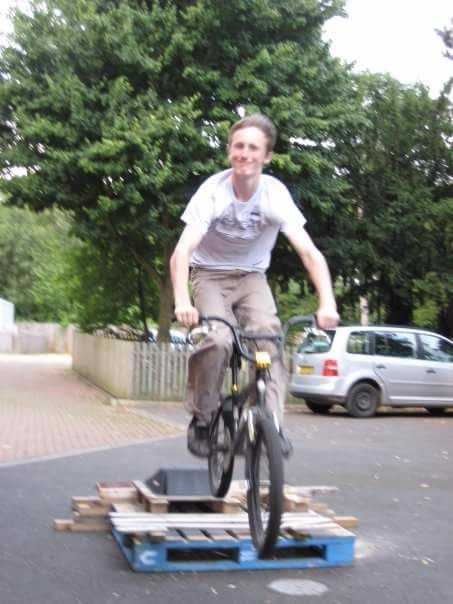
He was also elusive and secretive. When he learned staff at Woodland Retreat were keeping a log of the dates and times he went missing from the home, he started mixing it up so they couldn’t detect a pattern. And he frequently had furtive conversations on his jealously guarded mobile phone, telling staff members who inquired that it wasn’t their business.
He found someone to look up to in the form of Anwar Ismail, a hulking former security guard with a thick neck and a trim goatee. Ismail had completed no childcare qualifications, but he quickly became Aaron’s “key” carer, staff later told authorities. Ismail showered Aaron with attention. The two became inseparable, and they went on excursions together. Ismail took Aaron out in his Audi, and once they did doughnuts in the car park using the company car. Aaron was always excitedly telling the other staff what they had been up to. “Anwar was like a father to him,” a staff member later told police.
But, one day Ismail flew into a rage and twisted Aaron’s arm up his back so hard that the teenager had to go to hospital. Barford decided that Aaron needed to be moved and passed him along to Keys.
Aaron’s government-approved care plan declared he needed intense, one-on-one supervision. But he was now in the care of a company that cut corners, documents show.
Before the management overhaul, Keys’ homes were often starved of full-time employees, leaving staff on the ground to figure out how to fill the gaps. Often the only solution was to put in marathon hours, documents and interviews show. In a Nottinghamshire home that inspectors complained was “really understaffed”, the manager logged the numerous round-the-clock shifts she had to pull just to provide cover: “17.5 HOURS PLUS SLEEP”.
One former employee told BuzzFeed News that he once worked 129 hours in a single week. “I was dead on my feet,” he said — a dangerous situation in a home juggling multiple children with behavioural issues. “You put yourself in a bad position, because you need to be on your game the whole time.”
“No one was trying to save money by not covering the shift.”
Another way Keys papered over staffing shortages was by using contract workers. This often ratcheted up the tension inside homes, because contractors come in with little or no knowledge about the children they’re working with. Employees at one home told inspectors they felt “unsafe” working with contractors. In the Nottinghamshire home, the heavy presence of contract workers was “adding pressure to core staff”, the inspector wrote. This inspection came soon after Keys had changed management; the company said its new leaders had only been on board for a month — too little time to make “meaningful change”.
Deprived of staff and resources, Keys employees often lost control of the children. In a home in Norfolk cited by government inspectors for working some of its employees “excessively long hours”, the children nearly burned the place down. Making “flamethrowers” out of hairspray and lighters, they set fire to the walls, then tried to light a nearby education building. “This has put children at serious risk,” an inspector wrote. Keys noted that these incidents were before the change in management.
Another “understaffed” Keys home racked up a catalogue of “serious incidents” in a three-week span before the management overhaul, internal company investigative records show. An unknown “young man” was found in a child’s bedroom. One child made a makeshift weapon from a toothbrush and a Stanley knife, and another snuck in industrial hedge trimmers, then had to be sent to hospital after cutting his thumb with them. Three children were arrested “following an incident which involved a child throwing urine at a peer, a child exposing himself to staff and peer and damage to children’s property”. Police were called again after a child threatened to disfigure a housemate by pouring boiling water and sugar over them.
Keys told BuzzFeed News that since G Square Capital took over, it has “invested heavily” in its staff and created a “Keys Academy” for training, and has spent £2.2 million this year to improve work conditions and pay, noting that all staff are now paid more than the national living wage.
Back in 2010, one Keys home that faced staffing stresses was a converted hunting cottage in rural Nottinghamshire called Duncanwood Lodge. Paul Bancroft managed the home, and he told BuzzFeed News that Duncanwood was a “dumping ground for children at Keys Group that no one could look after”. Many on staff were “unqualified” and “unsure” and often paid close to minimum wage, Bancroft said.
Aaron Leafe arrived at Duncanwood in 2009. His new home had yawning windows looking out toward acres of vacant farmland and imposing forest. Across the street sat an unlit dirt car park. Aaron brought along a picture of him and Anwar Ismail on an amusement park ride.
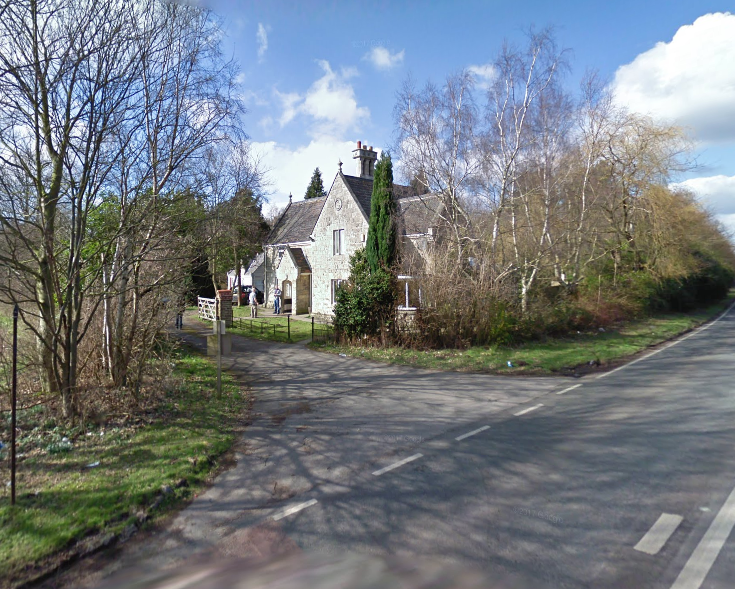
Bancroft, who had a decade’s experience and a bellowing voice rich with a thick Midlands accent, was in charge of welcoming him. Aaron had a tendency to act up when he first met people, swearing and slamming doors. And at first he talked tough, declaring he would “run the house”, Bancroft later told police. But Bancroft laughed it off. Soon Aaron warmed to him, and his softer edges began to show.
Nights could be rough — Aaron had a history of wetting the bed. On Friday nights, when Bancroft was away from the home but on call, Aaron would slam doors or set off the fire alarm or cause whatever other trouble it would take for the weary on-duty staff to call Bancroft. On the phone, he would tell Aaron that everything was okay, and he would calm down. In time, Aaron was telling Bancroft, unprompted, that he loved him.

For a while, Aaron seemed to have settled in at Duncanwood. But then he started going missing.
Sometimes he’d be gone a few hours; other times it was longer. On one occasion, Aaron didn’t come back for five whole days. Bancroft could not figure out what he was doing, or how he was escaping a bedroom with bars bolted to the window.
At many Keys homes, frequent disappearances were routine. BuzzFeed News obtained internal companywide “missing from care” reports for the months of July and August 2016, before the management overhaul. During a single week during that August, 37 of the 230 young people in Keys’ care went missing.
One 14-year-old went missing 13 times in July, then 14 times in August. A 16-year-old girl, whose care was costing taxpayers £400,000 per year, was able to slip away on 16 different occasions despite being supervised by two carers at all times.
Some disappearances lasted only an hour, with kids sneaking out to see a boyfriend, friends, or family. But others slid into serious danger.
A 15-year-old girl with a “known associate” who was a “suspected groomer” went missing for at least four weeks, during which time she was “possibly spotted” near a local drug den. Another young person became “heavily involved in criminal activities within the community”, developed an “all consuming” substance abuse problem, and then told staff that a drug dealer was “after him”. Yet another disclosed that when he went missing he was “drug running”. “Sometimes he is taking another young person with him,” a Keys manager wrote.
Many of the children Keys cares for do have serious behavioural issues and some were able to find creative ways to escape, internal company records show — removing the bedroom window bars then shimmying down a rope made from their bedding, for example.
Care home staff also face limits on what they can do when a child really wants to run away — there are laws against putting children in physical restraints, though staff can keep them locked in if they reasonably worry the children will put themselves in danger, and they can also follow them wherever they go.
But the sheer volume of missing incidents detailed in documents is “unacceptable”, said Stevens, the former adviser to the children’s commissioner. “It’s quite extraordinary. It’s beyond belief.” Keys noted that all of these issues came before the 2017 takeover, and said its own numbers show its rate of children going missing in England is now much lower.
“This is a poor outcome for one young person, and a traumatic experience for the others.”
At Duncanwood, Bancroft believed that staff could be doing more to prevent Aaron from absconding. “If you’re on a doorstep and a child says, ‘I am going out,’ and you say, ‘No, you’re not,’ you would physically hold them and stop them from going out,” Bancroft said. But many employees were so inexperienced, Bancroft said, that they often didn’t know when to step in.
Aaron often returned from his trips with cigarettes, a new phone, or some other gift. And during one of these escapes, Bancroft made a troubling discovery: The bars on Aaron’s window had been unbolted from the outside. Someone else, it seemed, was taking him away from the home.
The evidence was pointing toward sexual abuse. A staff member at Duncanwood had overheard Aaron having a graphic, sexual phone conversation.
Bancroft raised his concerns with authorities at Nottingham City Council multiple times, documents show. “I was shouting it from the rooftops,” Bancroft would later testify. He went to Keys higher-ups, too. But he was told, as part of a response that the serious case review later found to be “inadequate”, that little could be done until Aaron made a specific allegation.

A spokesperson for Nottingham City Council said in a statement that Aaron’s carers had focused on “trying to enable him to make a disclosure rather than acting on the evidence that was available”. The council has since made “significant improvements” in how it protects “children as vulnerable as Aaron”, the spokesperson said.
Soon after Aaron returned from one disappearance, Bancroft noticed scratch marks on his neck. Aaron first tried to claim that cats had scratched him, but when Bancroft pressed him he admitted that he had tried to hang himself with a belt.
A month later, Aaron tried to hurt himself again, declaring to staff that he had overdosed. He was rushed to the hospital, but doctors determined that he hadn’t taken nearly as many tablets as he claimed.
The morning he returned to Bancroft, Aaron declared that he wanted a private conversation with Bancroft and another careworker. They sat Aaron down in the kitchen, shut the door, and put the kettle on. Finally, Aaron started talking about Anwar Ismail.

Aaron kept his head down, tears dripping onto the pinewood table, as the revelations tumbled out. Ismail had groomed him with money, cannabis, and cigarettes. He let him drive his Audi and even rented him a flat where they could meet in secret. When he pressured Aaron to have sex with him, Aaron often felt he couldn’t say no.
Staff at Aaron’s old home run by Barford Care had long held suspicions about Ismail’s relationship with Aaron. One of his teachers at the adjoining school run by Barford had reported seeing Aaron lying on Ismail’s lap. On another occasion the teacher heard Aaron start shrieking at Ismail, “You can’t hold me like that.” And Aaron tended to go missing from the home on the same days that Ismail was known to work at a bar in town.
At some point, a report was written raising concerns about Ismail and sent to a Barford Care director, who locked it in a drawer, a Barford employee would later testify in court. No further action was apparently taken.
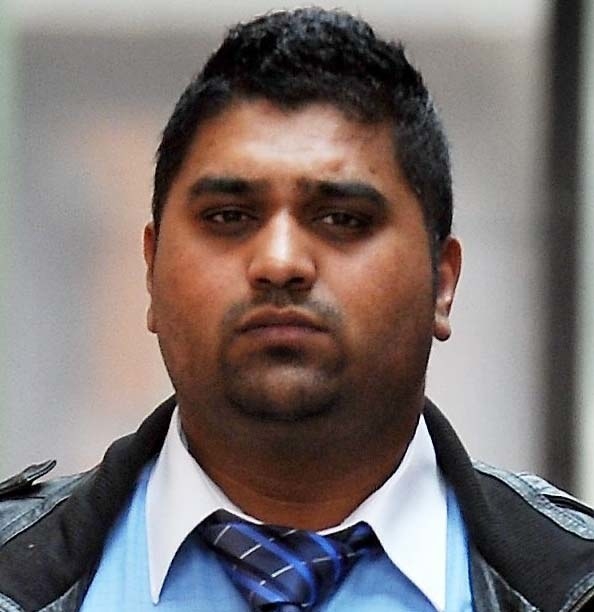
But after the incident where Ismail hurt Aaron’s arm, the company did begin a formal investigation into their relationship and learned that Aaron told staff detailed information about Ismail that “could only have come from Anwar”. That was when Barford decided to transfer Aaron to Keys.
It is unclear how much information Barford staff relayed to Keys about their suspicions. Barford’s current owners declined to discuss this.
Now, at the Duncanwood kitchen table, the dots connected. Those times Keys had let him go missing, he was with Ismail. It was Ismail with whom he was having the graphic conversations, and Ismail who had unbolted the window bars. And it was Ismail who had taken him away for five whole days — he had put Aaron up in the flat.
When Aaron finished, he looked relieved. Bancroft told him he was brave, and they hugged.
Bancroft hoped he could use Aaron’s disclosure to find a way to get Keys to offer him more therapy and more support. Yet when he called his superiors, they offered nothing. (Keys says that it under its new ownership it has “invested significantly in clinical and therapeutic support”.)
Documents are littered with other examples, from before Keys’ management overhaul, of the company exposing vulnerable children to serious risk of sexual abuse.
Internal reports show that in a single three-month period when the company was caring for about 230 children, staff made 15 different reports of child sexual exploitation. One young person, for whose care taxpayers were paying Keys £234,000 per year, was seen heading towards the area where a sex offender he knew lived, documents show. Two other young people who disappeared from a home in Yorkshire disclosed that they were having sex with a 21-year-old. Another child was made to strip by her housemates, who took photos and tried to post them online. The mother of yet one more child told staff that he had been “going to a bedsit with a 58-year-old woman” and that she feared her boy was “being groomed and abused again” — yet staff didn’t pass along that information to key people in charge of keeping him safe.
“Our absolute priority is to provide high-quality care for the children we support.”
In 2016, Keys ran a home in the East Midlands for girls who were extremely vulnerable. They went missing often and they were at risk of sexual abuse. When one went AWOL, she was often found “in dangerous situations with inappropriate males”.
Keys responded to their serious needs by filling the house with too many children and starving it of resources, documents show. The home was supposed to have four people on duty at any given moment. But a manager filling the gaps with round-the-clock shifts complained that there were only two people on the full-time staff with complete childcare qualifications.
One day, the girl ran away along with another resident, and British Transport Police spotted them boarding a train to Sheffield. The police stopped by the home to follow up and asked that somebody check the girls’ rooms. It was only then that dozens of notes from a staff member were discovered. They referred to seeing her undressed, wanting to kiss her, and wanting to take her towel off.
The staff member was suspended. BuzzFeed News is not naming the staff member because local authorities did not indicate whether he was ultimately charged with a crime. Keys’ former owners, who were in charge at the time, did not respond to questions about this case.
In the early days after his disclosure, Aaron’s demeanor improved dramatically. He stopped harming himself and disappearing, and he got along well with the other boy still at Duncanwood. Finally, Ismail was arrested.
Bancroft hoped Aaron would have “a period of stability”. It lasted a total of three weeks — until a new boy arrived.

The new arrival had a history of bullying, violence, gangs, and drugs. Bancroft was apoplectic. He was adamant that no one that dangerous should be anywhere near Aaron, because the teenager was still very vulnerable and he had a habit of mimicking whoever he was around.
Bancroft called his manager, sent a flurry of emails, and recruited his deputy to detail her concerns as well. But Keys ignored him. Bancroft told BuzzFeed News he had never been able to say no to a bad match during his time at Keys.
The company has a long track record of placing violent or dangerous young people with vulnerable children in its care as it scrambles to fill beds in its drive for profit. A 2016 internal memo between Keys managers after a space opened up in a two-child home shows the mindset: “pressure on to fill 2nd bed!!!”
Though that memo was sent before G Square Capital took over, seven government inspection reports from after the takeover criticise Keys for its approach to deciding where children should stay. One home did not gather or grasp important information about the “aggressive and challenging behaviours” of children before moving them in with others, an inspector wrote. Another home made a “poor decision” to admit a young person without considering how it would affect the other housemates.
One child’s arrival sent a Keys home in Gloucestershire into outright pandemonium: “Incidents include young people and staff being physically attacked, young people going missing from the home together, young people having their sleeping patterns disturbed and damage being caused to the home,” an inspector wrote. In just one month, staff had had to call the police three separate times. “This is a poor outcome for one young person,” the inspector wrote, “and a traumatic experience for the others.”
Five of these inspections occurred between February and August 2017, a period during which Keys had new owners but before they were able to install new management. Two occurred a month after the new management arrived; Keys said in a statement that those now in charge have moved quickly to transform its culture but that change cannot simply happen “overnight”.
The company added that three of the seven homes have received improved grades on more recent inspections, which “clearly demonstrates that significant improvements have subsequently been made across the board since the change of ownership and appointment of the new senior management team”.
“I was shouting it from the rooftops.”
A few days after he moved in, the new boy and Aaron took the other young person living at the home out to the woods where he was tied up, his trousers were pulled down, and he was burned with a lighter.
Aaron had participated in the tying up, but staff believed that he was “not the leader”, documents show. He appeared frightened of the new boy — “absolutely terrified”, as Bancroft would later put it — and tended to follow his lead. And it was Aaron, fresh off his own disclosure of Ismail’s abuse, who had come forward to the staff and revealed what had happened.
Yet when the police were called, Aaron was considered an accomplice. As part of his bail terms, Keys moved him to a new home, Ivy Cottage. After 10 months of relative stability, Aaron was ripped away from Bancroft. It would not take long for him to unravel.

At Ivy Cottage, Aaron’s stresses grew. Anwar Ismail was out on bail while he awaited trial. Aaron called Bancroft and told him that he had spoken with Ismail on the phone, though only to tell Ismail that he “hated” him. Aaron was also worried about his own upcoming court appearance about the incident in the woods. He declared he was trying to “bulk up” to build enough muscle to help him manage prison.
One day Aaron told his therapist that he would rather kill himself than go to jail. Staff at Ivy Cottage reported this up the chain of command at Keys. But the regional manager, Trish Gregory, replied that no further action was necessary, one employee told the police. Gregory did not respond to a message seeking comment.
Bancroft, who was on the phone with Aaron every day, made plans to take him fishing in early June. But he had to cancel last minute, and Aaron did not take this well — an Ivy Cottage manager called Bancroft saying he had wrecked the house.
The following week, Aaron started telling the other two boys at Ivy Cottage that he wanted to kill himself, asking one of them to do it with him. He called his stepfather and told him to look after his mother. That night, he slashed his wrists.
At this point — or at any point after any of Aaron’s attempts at suicide — Keys could have pushed for him to be put in secure accommodation, where high-risk children are monitored round the clock in locked rooms swept for dangerous objects. Barring that, it could have demanded that his room be checked routinely for anything he might be able to harm himself with.
That did not happen — and it would not be the last time a Keys home failed to monitor children with a history of self-harm more closely, documents show. In 2017 at a home in Shropshire, staff did not follow a child when she went missing. Then when she threatened to hurt herself, staff did not refer her to mental health specialists “or offer her any therapeutic intervention”, despite this being a key point of action in the written plan for her care, government inspectors wrote.
“If you have a house of sexually abused girls, you don’t put a predatory boy in there. But they would say, ‘You have to, because there is still a free bed in the home.’”
At a home in Somerset, staff were ordered to “regularly check on the welfare of a young person with a recent history of serious self-harm”. Yet they did not go into her room to look for dangerous objects.
The Shropshire inspection occurred under Keys’ new owners but before they brought new management aboard; the Somerset inspection a month occurred afterwards — but Keys noted that the new management had been there only a month, and said it is “unreasonable to imply” that they could make “meaningful change” happen so quickly.
After slashing his wrists, Aaron spent much of that day in a treehouse. When one of the other boys went up to see what Aaron was up to, he saw the nooses.
“What are they for?” the boy told police he asked Aaron.
“I’m gonna hang meself,” Aaron replied. “Do you want to do it with me?” The boy told him not to be daft. A third boy in the home saw the ropes as well, and also saw nooses in Aaron’s room.
Anne Smedley, an employee on the day shift at Ivy Cottage, noticed he was spending a lot of time in the treehouse. But she was preoccupied. Ivy Cottage was going to be short-staffed that Saturday evening, and Smedley couldn’t find anyone to fill in — England were playing in the World Cup that evening. The home’s manager would tell police that “it did cross my mind” that she might need to cover the shift, as she had “done before”. But she decided instead to go to a family get-together with her 80-year-old grandmother. Attempts to reach Smedley and the home's manager were unsuccessful.
As a result, there were only two people on staff at Ivy Cottage that night looking after the three children, instead of the three required by their government-approved care plans. One of the two was a contract worker named Gurbinder Sandhu, who had cared for Aaron only four times before. Sandhu told police that there were “no protocols in place” demanding that any of the three boys be monitored constantly and that he had not been told that Aaron had been threatening to hang himself. Attempts to reach Sandhu were unsuccessful.
The other person on duty, Teresa Simpson, told police that she didn’t know “the full circumstances” of the cutting incident, but had been briefed that Aaron “drew blood”. Staffing was “a big problem” at Ivy Cottage and she was used to working short-handed, Simpson said. “When this happens I just get on with my job and do the best that I can.”
Keys sent BuzzFeed News a statement from Simpson, who still works at the company. “No one was trying to save money by not covering the shift,” she said. An agency was supposed to supply another contract worker but failed to come through. More broadly, she said, Aaron’s death “was a tragic situation but an isolated incident which was not due to anyone cutting costs or corners”.
Aaron called his stepfather again that evening and again told him to look after his mother. They both had seen Aaron that Friday, and he seemed fine — it is unclear whether Keys informed them of his suicide attempt from the night before that visit.
"Does that mean the charges are dropped?"
After dinner, Aaron put on the suit he was going to wear for his court appearance, which was coming up that following week. Later, Simpson saw him writing alone in an empty room. Aaron told her he was working on some rap lyrics.
At the 80-minute mark of the football match, Aaron re-emerged. He showed one of the other boys the rap lyric: “Yo yo I’m going to hang myself tonight because I’ve had enough of life.” Neither Simpson nor Sandhu found out about the note. Aaron slunk away again.
About 10 or 15 minutes later, Sandhu went to check on Aaron and found him hanging. It was the 24th and final recorded time in Aaron’s life that he had harmed himself.
Aaron’s autopsy reported that he had a pierced right ear, fingernails bit short, and peach fuzz on his upper lip. The cuts on his wrists from his previous suicide attempt were still fresh.

Because abuse and neglect were believed to have contributed to Aaron’s death, the local council called in a panel of experts to conduct their “serious case review” of what had happened and whether it could have been prevented. Their devastating report, obtained by BuzzFeed News, noted that Barford had allowed Anwar Ismail to care for Aaron despite having no qualifications. The company had shown “neglect” of Aaron’s “basic need to be kept safe from grooming and sexually abusive behaviour”, the review found.
At Barford, the director who shut the report about Aaron and Ismail in a drawer and took no action was dismissed. Barford was bought in 2014 and made £180,000 in profit last year running four homes across the UK. A spokesperson for United Health, Barford’s new owner, said that it is now a “totally different company”. Two nonexecutive directors at Barford from the time of Aaron’s death remain with the company to this day; they “have nothing that they can comment on”, Barford says, because they “relied upon” the now-departed executives who were in charge at the time. Government inspectors rated each home “good”, though they noted that some staff still lack qualifications.
Meanwhile, Keys had let Aaron down at every key moment in the company’s care, the review found. It had failed to see the “clear potential for suicide”, especially during his last days alive. Care for Aaron at both Duncanwood and Ivy Cottage “fell below the high levels of supervision that were expected”, the review found, in order to keep Aaron safe “and meet his complex needs”.
Nottingham City Council had seen enough. In the eight years since Aaron’s death, it has not sent a single child to a Keys home.

“Does that mean the charges are dropped?” Anwar Ismail asked the police after he learned of Aaron’s suicide. But investigators pressed on with his case.
Ismail had singled Aaron out at Woodland Retreat after reading the file detailing the abuse he had suffered in his early life. He quickly grew obsessed, spending hours on the phone with Aaron — on one night when Aaron wasn’t picking up, Ismail called him 111 times. He texted him constantly, and sent one of those texts — “I can’t live without you” — right before Aaron announced he had overdosed.
Ismail’s phone GPS showed that, in all, he had driven to Duncanwood Lodge on 16 different occasions — stopping in the dark, quiet car park nearby.
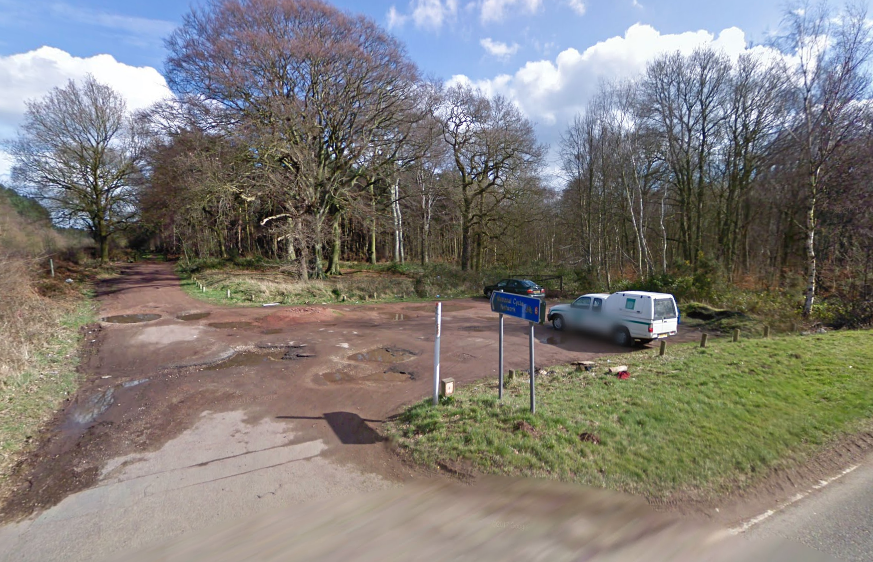
But the linchpin evidence was a 93-minute audio recording of the interview Aaron gave to police detailing Ismail’s abuse. “I was scared of him,” Aaron said on the recording. “I just did what I was told.”
In August 2013, a jury convicted Ismail of seven counts of sexual assault and sentenced him to 18 years in jail. Aaron had been dead for more than three years. ●

The Samaritans UK helpline number is 116 123. Other international suicide helplines can be found at befrienders.org.

